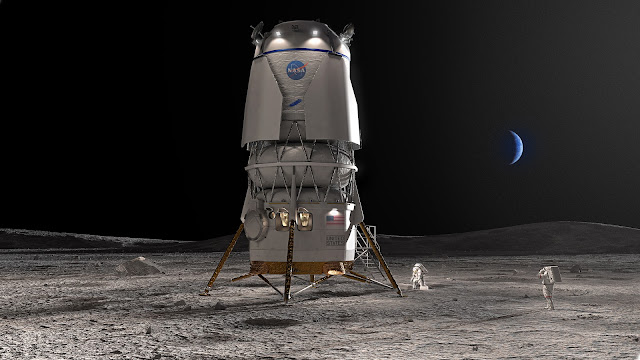Voyager Space and Airbus Announce Joint Venture to Build and Operate Starlab
Joint Venture to serve as a commercial successor for the International Space Station, ensuring continued US and European collaboration in space
Voyager Space (Voyager), a global leader in space exploration, and Airbus Defence and Space (Airbus), the largest aeronautics and space company in Europe, today announced an agreement paving the way for a transatlantic joint venture to develop, build, and operate Starlab, a commercial space station planned to succeed the International Space Station. The US-led joint venture will bring together world-class leaders in the space domain, while further uniting American and European interests in space exploration.
“We are proud to charter the future of space stations with Airbus,” says Matthew Kuta, President at Voyager Space. “The International Space Station is widely regarded as the most successful platform for global cooperation in space history, and we are committed to building on this legacy as we move forward with Starlab. We are establishing this joint venture to reliably meet the known demand from global space agencies while opening new opportunities for commercial users.”
Voyager was awarded a $160 million Space Act Agreement (SAA) from the National Aeronautics and Space Administration (NASA) in December 2021 via
Nanoracks , part of Voyager’s exploration segment. Part of NASA’s Commercial Low Earth Orbit Development Program, this SAA sets the foundation to create Starlab, a continuously crewed, free-flying space station to serve NASA and a global customer base of space agencies and researchers. The program’s mission is to maintain continued human presence and American leadership in low-Earth orbit (LEO). Today’s announcement builds on an agreement made public in
January 2023, where Voyager selected Airbus to provide technical design support and expertise for Starlab.
“With a track record of innovation and technological firsts, Airbus prides itself on partnering with companies that are looking to change history,” said Jean-Marc Nasr, Head of Space Systems at Airbus. “This transatlantic venture with footprints on both sides of the ocean aligns the interests of both ourselves and Voyager and our respective space agencies. This pioneers continued European and American leadership in space that takes humanity forward. Together our teams are focused on creating an unmatched space destination both technologically and as a business operation.”
In addition to the US entity, Starlab will have a European joint venture subsidiary to directly serve the European Space Agency (ESA) and its member state space agencies.
Voyager Space is dedicated to building a better future for humanity in space and on Earth. With over 35 years of spaceflight heritage and over 2,000 successful missions, Voyager is powering the commercial space revolution. Voyager delivers exploration, technology, and defence solutions to a global customer base that includes civil and national security agencies, commercial companies, academic and research institutions, and more.
This announcement follows a major design milestone in Starlab’s development, the Systems Requirements Review (SRR), which baselines the major space systems, technical readiness, and ability to meet NASA’s mission and safety requirements. The Starlab SRR, was completed in
June 2023 in coordination with NASA’s Commercial LEO Development Program team.
“Today marks a major step forward for the future of commercial space destinations,” continues Kuta. “We are proud to have NASA’s trust to build the replacement for the ISS, a partnership that expands Starlab’s ecosystem to global space agencies, and a team that is mission-driven and dedicated to reimagining the future.”
The implementation of the joint venture will be subject to applicable regulatory approvals.






















